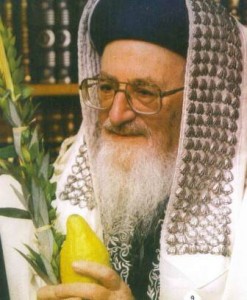The results of recent Jewish community surveys are alternately delightful and dismal, exciting and excruciating. The growth of Torah-observant households is a stunning phenomenon, while Jewish sociologist Steven Cohen observed, “the sky is falling for the rest of the population.”
Given this dichotomy and the urgency of the problem, we might imagine that everyone would want to know what it is that we, the Orthodox, are doing right. But apparently we would be wrong. Despite multiple surveys detailing the divergent trajectories of young traditional versus liberal Jews today, we have seen no studies dedicated to understanding our successful formula. Instead, Federations and well-meaning philanthropic foundations continue to invest great sums of money on projects whose claim to promote Jewish continuity is nothing more than conjecture — with predictable results.
As we all know, the Torah community is thriving. In less than a decade, the number of Orthodox Jews grew by over 100,000 in the New York area alone, according to the UJA/Federation survey — over 20%. In Baltimore, a similar survey showed an increase of 50%. Last year’s Pew Survey reported more modest growth nationally, but noted that while 11% of adults 18-29 are Orthodox, the same is true of 27% of Jewish minor children. 60% of Jewish children in the New York City area live in Orthodox homes.
But a birth rate of over five children for the average charedi family is only one important factor. According to the Pew Survey, only 22% of retirement-aged Jews raised Orthodox remain Orthodox today. By contrast, the retention rate for those now 30-49 is 57% — while fully 83% of young adults (under 30) remain in our community. Again, one would expect that understanding the dramatic improvement in Orthodox retention would be a high priority.
Instead, many Jewish pundits find themselves living in the past. Writing in The Forward, Josh Nathan-Kazis opines that “The picture is of a denominational rockfall sliding from more traditional streams through the Reform movement and out of the denominational structure altogether.” While this image may have been accurate for thousands of families, “Orthodox by default,” who immigrated from Europe prior to the War, today it is as dated as a rotary phone.
Pini Herman, a researcher at the Jewish Federation of Los Angeles, went still further, arguing that “it is in the self-interest of the Conservative and Reform movements to encourage the flowering of the Orthodox American Jewish community, for they are the ultimate beneficiaries of the adult choices of Orthodox-raised children.” They have missed the boat on our success, neatly explaining why they cannot chart their own.
For it is not true that the educational efforts of the Orthodox community, which Herman acknowledges as “heroic,” “legendary,” and “to the point of actual impoverishment,” have resulted in the production of yet more heterodox Jews. On the contrary, commitment to Torah education over multiple generations has made the retention of our youth the norm rather than the exception. Today’s Torah community is literally that — a community of Torah, in which parents, rebbeim and teachers all work together to transmit the mesorah.
Why is this so poorly understood by outside observers? Liberal Jews have been trained to believe that their traditional brethren — especially those labeled the “ultra-Orthodox” — comprise a society so alien that their experience is irrelevant. Besides news stories highlighting bizarre tales of (often exaggerated, if not invented) wrongdoing, there is a more basic depiction of traditional Jews as no more modern than the Amish, but more hostile. Further, our brethren regard the Talmud and other traditional texts as practically our exclusive province.
Yet learning is and remains the answer. There is no magic or gimmick, and no alternative that will ever be effective. Their lack of awareness remains their own loss — and it remains our obligation to do all we can to show them the way forward. To study Judaism, to connect yourself to generations past, and to make this the centerpiece of a child’s education, comprise the only effective route to ensuring a Jewish future.
This article first appeared in Ami Magazine.

 The parsha says that if we follow G-d’s Laws, we will be richly rewarded — but also says that if we don’t, we will be punished. So are we acting out of fear of punishment, or because we want the reward? Our Sages add two additional possibilities: acting out of fear or love of G-d, without regard to the reward or punishment. Similarly, if someone has done wrong and is returning to G-d, the Sages distinguish between one who does so out of fear of punishment, fear of G-d, or love.
The parsha says that if we follow G-d’s Laws, we will be richly rewarded — but also says that if we don’t, we will be punished. So are we acting out of fear of punishment, or because we want the reward? Our Sages add two additional possibilities: acting out of fear or love of G-d, without regard to the reward or punishment. Similarly, if someone has done wrong and is returning to G-d, the Sages distinguish between one who does so out of fear of punishment, fear of G-d, or love. Rabbi Yisrael Mayer Kagan, the saintly Chofetz Chayim, says that the Torah is teaching us that even a person who has put himself into a bad situation is not exempt. By putting himself into indentured servitude to a non-Jew, this person was certainly embarrassed, and knew full well that he would have many challenges and failures when it came to doing the Commandments. Nonetheless, he remains obligated like anyone else.
Rabbi Yisrael Mayer Kagan, the saintly Chofetz Chayim, says that the Torah is teaching us that even a person who has put himself into a bad situation is not exempt. By putting himself into indentured servitude to a non-Jew, this person was certainly embarrassed, and knew full well that he would have many challenges and failures when it came to doing the Commandments. Nonetheless, he remains obligated like anyone else.
 It turns out that our brains need exercise, too. The Alzheimer’s Association reports that “higher levels of education appear to be somewhat protective against Alzheimer’s, possibly because brain cells and their connections are stronger. Well-educated individuals can still get Alzheimer’s, but symptoms may appear later because of this protective effect.” It is almost ordinary to find a Rabbinic scholar in his 90’s with no noticeable loss of his faculties — due to constant exercise of the brain.
It turns out that our brains need exercise, too. The Alzheimer’s Association reports that “higher levels of education appear to be somewhat protective against Alzheimer’s, possibly because brain cells and their connections are stronger. Well-educated individuals can still get Alzheimer’s, but symptoms may appear later because of this protective effect.” It is almost ordinary to find a Rabbinic scholar in his 90’s with no noticeable loss of his faculties — due to constant exercise of the brain.